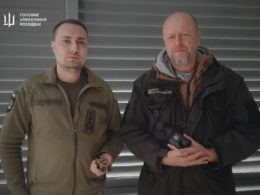Google's Jigsaw subsidiary will launch a campaign next week to tackle disinformation in Poland, Slovakia, and the Czech Republic about Ukrainian refugees based on research by psychologists at Cambridge and Bristol universities, which have produced 90-second clips designed to "inoculate" people against harmful content on social media, Reuters reports.
The clips, which will run in advertising slots on Google's YouTube and also on other platforms such as Twitter, TikTok and Meta's Facebook aim to help people identify emotional manipulation and scapegoating in a news headline.
The research was spread over seven experiments, including with a group of Americans over 18 years old who watch political news on YouTube. Jigsaw exposed around 5.4 million US YouTubers to an inoculation video, with almost a million watching for at least 30 seconds.
The campaign is designed to build resilience to anti-refugee narratives, in partnership with local non-government organisations, fact checkers, academics, and disinformation experts.
"We are thinking of this as a pilot experiment, so there's absolutely no reason that this approach couldn't be scaled to other countries," Beth Goldberg, head of research at Jigsaw, said in an interview.




